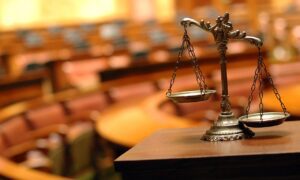Property insurance is a crucial protection that homeowners and property owners rely on to safeguard their assets from unforeseen events. However, it is essential to understand that not all risks are covered under a standard property insurance policy. Insurance policies often contain exclusions, or hidden gaps, which can leave policyholders vulnerable to certain types of losses. In this article, we will explore some common property insurance policy exclusions, shedding light on these hidden gaps and helping property owners make informed decisions when it comes to protecting their investments.
Natural Disasters: Acts of God
Property owners often assume that their insurance policy covers all types of natural disasters. However, many policies exclude certain perils considered “Acts of God.” These events include earthquakes, floods, hurricanes, and wildfires. While these are significant risks in certain regions, they may require additional coverage or separate policies to ensure adequate protection. It is essential for property owners to carefully review their policies and understand the specific exclusions related to natural disasters.
Earthquakes
Earthquakes can cause significant damage to properties, including structural collapse, foundation issues, and destruction of personal belongings. Unfortunately, earthquakes are typically not covered under standard property insurance policies. Property owners residing in earthquake-prone regions should consider obtaining separate earthquake insurance coverage to protect their assets in the event of a seismic event. Such policies typically cover damage to the structure, personal property, and additional living expenses incurred due to the earthquake.
Floods
Flooding can result in devastating damage to properties, from structural issues to the destruction of belongings. However, most property insurance policies do not provide coverage for flood-related losses. Property owners in flood-prone areas should explore obtaining flood insurance through the National Flood Insurance Program (NFIP) or private insurers. This coverage can provide financial protection against flood-related losses, including damage to the structure, personal property, and additional living expenses.
Hurricanes
Hurricanes are powerful storms that can cause severe destruction along coastal areas. Despite their destructive potential, standard property insurance policies often have exclusions for hurricane-related losses. Property owners residing in hurricane-prone regions should consider obtaining separate windstorm or hurricane insurance to supplement their existing coverage. These policies typically cover damage caused by high winds, rain, storm surges, and other hurricane-related perils.
Wildfires
Wildfires pose a significant threat to properties located in fire-prone areas, such as wooded regions or areas experiencing prolonged droughts. Unfortunately, standard property insurance policies may exclude coverage for wildfire-related losses. Property owners should investigate obtaining separate wildfire insurance to ensure their assets are adequately protected. These policies typically cover damage to structures, personal belongings, and additional living expenses incurred due to a wildfire.
Wear and Tear, Gradual Damage, and Neglect
Property insurance policies are primarily designed to cover sudden and accidental damage, rather than damage resulting from wear and tear, gradual deterioration, or neglect. These exclusions are commonly found in insurance policies and can lead to disputes between policyholders and insurers.
Wear and Tear
Over time, all properties experience wear and tear due to aging and regular use. However, property insurance policies do not typically cover damage resulting from normal wear and tear. This can include issues like peeling paint, rust, plumbing leaks due to old pipes, or electrical malfunctions caused by outdated wiring. Property owners should be aware that maintaining their properties and addressing maintenance issues promptly can help prevent more significant problems and potential insurance coverage disputes.
Gradual Damage
Gradual damage refers to damage that occurs over an extended period due to factors like water leaks, mold growth, or foundation issues. Insurance policies often exclude coverage for damage resulting from gradual deterioration or maintenance issues that were neglected by the property owner. Property owners must conduct regular inspections, address any potential issues promptly, and maintain their properties to mitigate the risk of gradual damage and associated coverage gaps.
Neglect
Property insurance policies commonly exclude coverage for damage resulting from neglect. Neglect can include failure to maintain the property adequately, neglecting necessary repairs, or failing to take reasonable measures to prevent losses. Property owners have a responsibility to maintain their properties and take proactive steps to prevent damage. Failing to do so may result in insurance claims being denied, states Carrigan insurance claims lawyer.
Understanding the exclusions in property insurance policies is crucial for property owners to ensure they have adequate coverage for their assets. The hidden gaps or exclusions in policies, such as those related to natural disasters and gradual damage, can leave property owners vulnerable to significant financial losses. By reviewing their policies carefully, considering additional coverage when needed, and actively maintaining their properties, property owners can mitigate the risk of hidden gaps and ensure they are adequately protected against a wide range of potential risks.



































